#myrna loy quote
Explore tagged Tumblr posts
Text
I believe in liberality of thought and have no time for any kind of totalitarianism - be it right or left.
~ Myrna Loy

23 notes
·
View notes
Photo


Modern Screen, November 1937
#Myrna Loy#1937#feminism#equal rights#vintage magazine#myrna loy quote#badass#old hollywood#The perfect wife
383 notes
·
View notes
Text


I'm having a copy made for you.
#the thin man#william powell#myrna loy#w. s. van dyke#pre code#comedy-mystery film#Nick Charles#movie scenes#scenephile#movie quotes#film quotes#movie scene#film scene
45 notes
·
View notes
Text

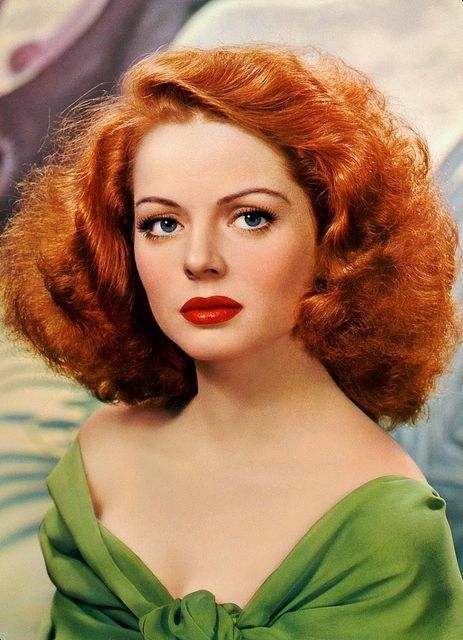
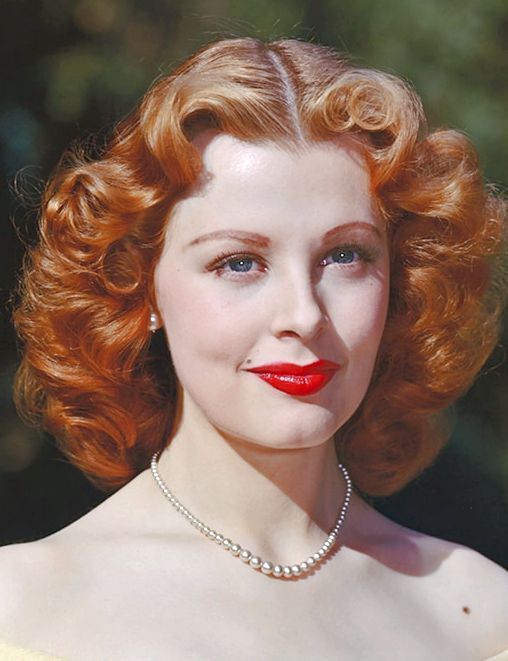

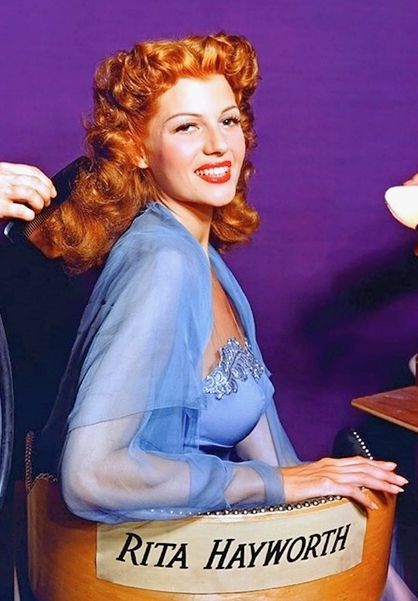



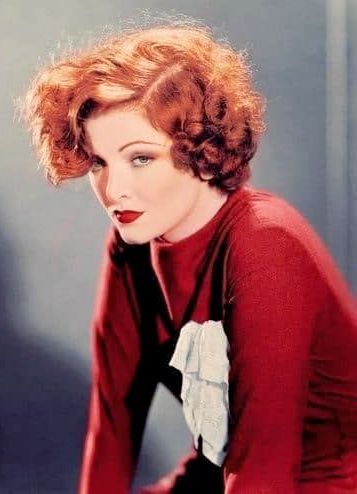
"REDHEADS are as colorful as a day in autumn, as spectacular as the setting sun. The redhead is the Sun Goddess . . . she lights up a room when she enters . . . her color is yellow. Her season is fall. Her time of day . . . sunset. She can see herself reflected in the flaming foliage, the setting sun. Though she's synonymous with all the flowers of autumn ( the chrysanthemum in its yellow, gold and coppery tones, the aster, the marigold), the tiger lily represents her best. The flaxen-haired have been immortalized by artists and poets as symbols of love and beauty, but so have the red-haired. Titian, Rubens and Renoir glorified red-gold locks; Reynolds and Gainsborough, warm auburn, and Lautrec, fiery red. Marlowe wrote of the beauteous Helen of Troy in his play, Doctor Faustus. The face "that launched a thousand ships" and caused the Trojan war was framed with red-gold tresses.
-Arlene Dahl
#ann margret#arleen whelan#arlene dahl#clara bow#rita hayworth#tina louise#jeanne crain#maureen o'hara#myrna loy#redhead#redheads#quote#old hollywood#helen of troy
176 notes
·
View notes
Text
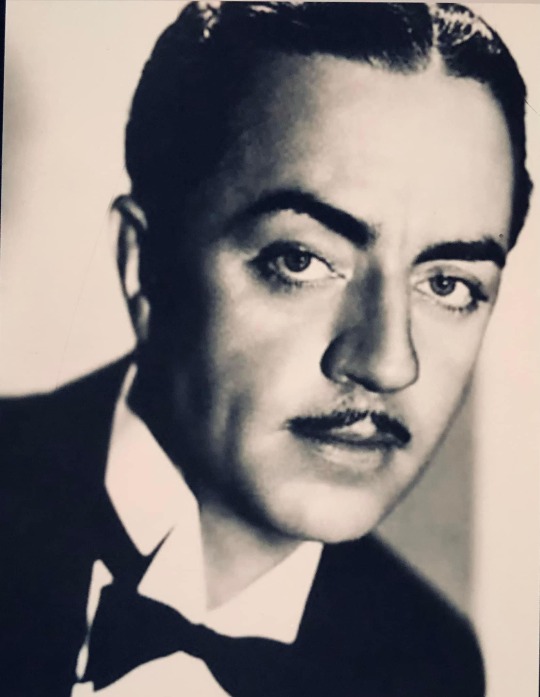
Remembering William Powell
July 29, 1892-March 5, 1984
“When he died at ninety-one, I was one of the first people Mousie called. For weeks afterward, friends wrote and telephoned condolences, as if I had lost a husband. Well our screen partnership lasted thirteen years through fourteen pictures, longer than any of my marriages. To this day, forty years after our last appearance together, people consider us a couple. I never enjoyed my work more than with Bill. He was a brilliant actor, a delightful companion, a great friend and, above all, a true gentleman, with those often attributed, but seldom possessed qualities: great style, class, breeding. I have seen him frequently and we have kept in touch over the years. There’s nobody like him. There’s never going to be anyone quite like him. I miss him more than I can say.” ~ Myrna Loy on the passing of her dear friend, William Powell-March 5, 1984❤️
49 notes
·
View notes
Text
New episode!
Script below the break.
Hello and welcome back to the Rewatch Rewind! My name is Jane, and this is the podcast where I count down my top 40 most frequently rewatched movies in a 20-year period. Today I will be discussing number 12 on my list: RKO and Vanguard Films’ 1947 comedy The Bachelor and the Bobby-Soxer, directed by Irving Reis, written by Sidney Sheldon, and starring Cary Grant, Myrna Loy, and Shirley Temple.
This movie is kind of like the Major and the Minor in that it has an incredibly bizarre premise and absolutely would not be made today but is somehow way better than it has any right to be. There is so much going on that I don’t even know how to summarize the plot concisely in a way that will make sense to people who haven’t seen it, but I’ll try.
Judge Margaret Turner (Myrna Loy) is the guardian of her 17-year-old sister Susan (Shirley Temple), who thinks she sentences people too harshly. Perhaps slightly influenced by this, when artist Richard Nugent (Cary Grant) comes before her charged with starting a brawl, she lets him off with a warning, against the urging of assistant district attorney Tommy Chamberlain (Rudy Vallee). That same afternoon, Richard is the guest lecturer at Susan’s school, and she immediately develops a crush on him. After interviewing him for the school paper, Susan decides she needs to model for him, so that evening she gets into his apartment when he’s not there. As soon as he discovers her, Margaret and Tommy show up, assuming Richard was trying to seduce Susan. Richard ends up in jail after punching Tommy. When it becomes clear how deeply Susan has fallen for Richard, the court psychiatrist, Dr. Matt Beemish (Ray Collins), who also happens to be Margaret and Susan’s uncle, convinces the ADA to drop the charges if Richard agrees to date Susan until her infatuation wears off. And then of course, Richard and Margaret start to develop feelings for each other.
I don’t really remember my first impressions of this movie. I think the rest of my family watched it without me before I’d seen it, but I can’t remember if I was busy doing something else or just wasn’t interested. But it didn’t take long for me to start loving it, and that love has never really faded. I watched it twice in 2003, three times in 2004, once in 2005, once in 2006, once in 2009, twice in 2010, three times in 2011, once in 2012, 2013, and each year from 2015 through 2021, and three times in 2022. I’m pretty sure I had also seen it in 2002, because I remember being very into it in 7th grade, which was the 2002-2003 school year. I was in a writing class with one of my best friends, in which we got to write a play together. I must have shown this movie to her by then because we would quote the “You remind me of a man.” “What man?” “The man with the power.” “What power?” “The power of hoodoo.” “Hoodoo?” “You do.” “Do what?” “Remind me of a man.” “What man?” “The man with the power…” etc circular routine so frequently that we had to put it in our play. Now I know that that has also been referenced in other media, but as far as I can tell, it originated in The Bachelor and the Bobby-Soxer.
In addition to inventing that silly routine, this script also invented fake slang that I love. Susan likes to say that she’s feeling “sklonklish,” which seems to mean too tired to do anything, which is very much a mood. And then there’s the iconic “Mellow Greetings, Ukie-Dukie” that Susan’s former (and future) boyfriend Jerry White (played by Johnny Sands) teaches Richard, which has been the header on my main Tumblr blog since I started it in 2012. In fact, if you can get past the whole “a court would never order a middle-aged man to date a teenaged girl, wtf” of it all, this movie’s script is surprisingly fabulous, full of great one-line zingers and thoroughly engaging conversations between well-developed characters and several iconic scenes. Sidney Sheldon won an Oscar for the screenplay, which I still kind of can’t believe because goofy movies like this don’t tend to win Academy Awards, but it was definitely deserved. The writing is so excellent that it not only pulls off the ridiculous premise, but it almost makes you forget that the premise was ridiculous in the first place. The characters are written so believably that you don’t want to question them. There are so many great scenes throughout, and the part in the restaurant where it seems like Richard and Margaret might finally get on the same page but keep getting interrupted by more and more characters showing up and the waiters singing “Happy Birthday” and “Happy Anniversary” to a bunch of different people, is still one of the best comedic drama scenes I’ve ever seen.
The script was already incredible on the page, and then it was brought to life by the perfect cast. I’ve already talked about one Cary Grant/Myrna Loy pairing, Mr. Blandings Builds His Dream House, which was made the year after The Bachelor and the Bobby-Soxer, and they are equally delightful together in both, although their characters’ dynamic could not have been more different. In Mr. Blandings, while their relationship has some ups and downs, they’re married to each other the whole time, whereas in Bachelor and the Bobby-Soxer they embark on a mutual-contempt-to-mutual-admiration journey. And they both play every stage of their relationship flawlessly. They have incredible chemistry, both romantic and comedic, so their scenes together are beautifully entertaining. And then there’s Shirley Temple. This was toward the end of her film career, and you can kind of tell that the studios didn’t really know what to do with her now that she wasn’t a little girl anymore. In many of her earlier films, she played an orphan who managed to charm grumpy older men, and again in this movie she plays an orphan, but now that she’s a teenager, enchanting adults isn’t cute anymore. The older man needs to find it annoying that she’s trying to charm him, otherwise it would be creepy. I’m sure it must have been frustrating for 19-year-old Temple to be essentially typecast in the same kind of role she’d been playing since she was a toddler, except now she’s the obstacle to the main love story rather than the star. But by golly, she sells the heck out of it anyway. She gives Susan the exact blend of silliness and earnestness required to make the character and the story work. She has a very believable sisterly dynamic with Myrna Loy, even though Loy was definitely old enough to be her mother. It’s unclear what their characters’ age gap is supposed to be – we know that Margaret is an established judge while Susan is still in high school, so they have to be pretty far apart, which is kind of odd because Margaret tells Richard that their parents didn’t get married until they were both out of law school, so they must have been rather old when Susan was born, but let’s not overthink it too much. Margaret is clearly torn between trying to be a sister and parent figure to Susan, who doesn’t seem at all interested in making that easier on Margaret, and I love the way Myrna Loy and Shirley Temple play within that tension.
And then there’s the way Susan interacts with Richard. She thinks he’s the most wonderful person she’s ever seen and is initially awestruck. There’s this great moment when they first meet and she dares to lightly touch his arm, and then looks like that’s the most fantastic thing she’s ever done. And then she decides she’s deeply in love with him, and when they start going out, she’s convinced they’re going to end up together. Richard never really knows what to make of Susan, but he tries to keep up with her as best he can. One of my favorite scenes is when Susan is interviewing Richard, and he starts out just giving her vague, bland answers, but when she keeps insisting that he must have had a very interesting life, he starts making up a super dramatic backstory. She hangs on his every word, absolutely eating it up. At one point, he tells her that he used to steal, and she breathlessly asks, “What did you steal?” Richard’s line is “crusts of bread and things,” but Cary Grant gives one of my favorite line deliveries of all time. He starts with saying “crusts of bread” kind of normally, but then he pauses dramatically, leans forward, and puts a lot of emphasis on “and THINGS” and then does this amazing little nod and I love it so much. “Crusts of bread… and THINGS” is one of those random movie lines I quote a lot and nobody knows what I’m talking about. Anyway, there are a bunch of other very entertaining moments between Richard and Susan, like when they’re watching the high school basketball game and Susan’s really getting into the cheers, and at the end of one, she looks at Richard expectantly, so he just goes, “Rah!” with mock enthusiasm, which seems to satisfy her. And of course there’s the “mellow greetings, ukie-dukie” scene when they’re both just saying nonsense fake slang but making it sound like a real conversation. They absolutely should not be dating, but I really enjoy the aspects of their relationship that don’t involve Susan trying to make something romantic happen. I can definitely see them having a fun sibling-in-law dynamic in the future.
It’s funny because I feel like this movie is one of the main things that made me think that I did have a crush on Cary Grant, and it was also one of the main things that convinced me that I didn’t. In my teens and early 20s, I claimed that I loved this movie because I related to Susan having a hopeless crush on Cary Grant. But eventually I realized that I was relating more to the part toward the end when Susan finally realizes that she actually doesn’t like Richard that way. In Susan’s case, it’s because she’s better suited for Jerry, who is literally perfect for her – they talk the same way and have the exact same attitude toward life, and he cares about her so much that he even organizes a group of friends to make Richard win an obstacle race because he knows it will make Susan happy. In my case, it meant facing the fact that I was probably never going to like anyone that way, despite society’s myths about soulmates and amatonormativity and such, which is perhaps why it took me decades to figure out what Susan learned in a few days. This movie, like most, is very amatonormative, but I think it does a pretty good job of demonstrating that being in awe of someone is not the same thing as being in love with them. The first time Susan sees Richard, she imagines him in shining armor, and immediately puts him on a pedestal. Even if there hadn’t been an inappropriate age difference between them, that kind of relationship is not sustainable. Margaret, too, imagines Richard in armor, but that’s after she’s gotten to know him. She initially saw him as a common criminal, then saw him briefly as a gallant knight, and is mature enough to conclude that he’s just a normal person in between those two, and that’s part of why I feel like their relationship has a future.
While I love most of the characters in this movie, there are two that bother me. One is Dr. Beemish, aka Uncle Matt, and the other is Tommy Chamberlain, aka the assistant district attorney. Dr. Beemish does play an important role in getting Richard and Margaret together, but I don’t know why he has to be so slimy about it. Part of what I don’t like about him is he’s way too focused on Margaret getting married. Before Richard even enters the story, Matt responds to Margaret putting on her judge’s robes with, “Exit woman, enter judge. More’s the pity.” And it’s just like, excuse me, she can be a judge and a woman! It feels like the movie was trying to say, “We’re progressive, but not that progressive” and I hate it. Although Matt does add at the end of that scene that he’s more interested in making sure she marries the right man than making sure she gets married at all, which I guess is nice, though I’m not sure why he’s appointed himself in charge of that. Margaret can find the right man for herself. But to be fair, he did say that in response to Tommy giving her a present, which, like, I’m sorry, but it seems very weird to me that Tommy and Margaret are kind of sort of dating at the beginning of the movie. Like, I’m not an expert on judiciary ethics, but an assistant district attorney dating a judge feels like a major conflict of interest. I guess the idea was that if they got married, she would just… quit? I don’t know, but I don’t like it, which is why I forgive Uncle Matt for trying to steer Margaret away from Tommy and toward Richard. I do think Dr. Beemish should lose his job, and possibly his medical license, for telling the police that Tommy’s a mental patient of his who thinks he’s an assistant district attorney, even though that scene is very funny and Tommy does kind of deserve it. What I’m trying to say is, this movie is far from perfect, but none of its flaws make me love it any less.
I do think it’s a little ironic that this movie made such a big deal about how inappropriate it would be for Cary Grant to date someone as much younger than him as Shirley Temple was, and then in Father Goose he played opposite Leslie Caron, who was born three years after Shirley Temple was. I mean, that movie was made 17 years after Bachelor and the Bobby-Soxer, and as I mentioned in that episode, age gaps are significantly less disturbing when the younger partner is over 30. But still. Given that Cary Grant would now be 119 years old, it’s kind of wild to me that some of his costars are still alive. (Shirley Temple is sadly not one of them, rest in peace, but Leslie Caron is.) But at least in this movie, Grant’s main leading lady was only a year younger than him. I also think it’s kind of funny that the movie establishes that Richard is 18 years older than Susan, when Grant was actually 24 years older than Temple, especially because Susan was two years younger than Temple. It just goes to show that Hollywood has been messing with people’s perceptions of age for a very long time. I’ve always been more interested in age from a numerical perspective than an existential perspective, and I often forget that most people in this society view aging past adulthood as inherently negative, at least until one reaches a particularly impressive old age. As of this week, I am over a third of the way to 100 years old, which realistically probably means I’m more than a third of the way through my life, but my brain is far more interested in going, “Ooh, 33.33333…infinite threes!” than pondering my mortality. But I’ve learned that that is unusual, and a lot of people get offended if you bring up their age, which is part of why I tend to focus my interest in people’s ages on past movie stars who are either deceased or beyond the point where age becomes a badge of honor again.
Anyway, thank you for spending some of your limited time on earth listening to me discuss another of my most frequently rewatched movies. Next week I’ll be talking about the other Cary Grant movie I watched 25 times while I was keeping track, which is one in which he starred opposite an actress who was significantly younger than him, although she was born a few years before Shirley Temple, and who is, knock on wood, as far as I know at the time of recording, currently the oldest living Oscar winner. So stay tuned, and as always, I will leave you with a quote from that next movie: “Seven parking tickets.”
8 notes
·
View notes
Note
27, 28, 32, 39, 48, 50, 52 💜
mash asks (pt. 2)
oh my god ally set me up for an essay why don't you??
27. which era is your favorite? hawkeye/trapper/frank, hawkeye/bj/frank, or hawkeye/bj/charles? hawk/bj/frank! i'm a huge charles girlie, but something about frank's atrociousness in the mix is particularly entertaining. and there's conflict! constantly!
28. which is your comfort episode? maybe not your favorite episode, but an episode you watch to feel happy? all of the obvious ones, i think: movie tonight, eye for a tooth, april fools, springtime.
32. they make a lot of references to popular media back then, do you have a favorite? if you don’t know/aren’t familiar with them, any favorite impersonations that they do? i love a lot of them mainly because i'm in love with myrna loy but my favorite is a one-off, minor reference somewhere in s6 that hawkeye makes to the song 'two sleepy people' which happens to be one of my favorite songs ever
39. if you could pick one character/patient that died to live instead, who would you pick? (excluding henry come on guys 🙄🙄) i'm going to go a little wild card here and say the last musician in gfa every iota of my heart is saying tommy gillis but he has to die! he's doomed by the narrative and hawkeye doesn't become hawkeye without losing tommy right there on the table!!! to leave charles with some shred of hope and long-term recognition of the self through the other
48. what episode are you showing to your friend as a first impression to get them into mash? (pilot barred) okay i'm going to give three: hepatitis, rally round the flagg boys, and no sweat
50. what’s an episode that everyone seems to love but you don’t really like? alternatively, which episode do you think needs all the love? i really can't get into point of view or goodbye radar, although believe me, i've tried. i think that point of view just seems like the weakest of all of the non-traditional episodes (all of which i love a whole bunch) and the writing in goodbye radar doesn't hold up to me. now alcoholics anonymous!! that's an episode! dare i say THE episode!!!
52. wildcard again! poster can pick whichever question they want to answer!! >>> 30. do you have any lines you find yourself quoting in real life? "butt out, this is man talk" STAYS in my daily vocabulary because gender is funny i'm sorry
4 notes
·
View notes
Text
December 1936: Gossip Scraps
Dec. 1, 1936: Yuma Marriage Handicap
The Yuma Marriage Handicap, with a kiss awaiting the winner from Dan Cupid’s new ambassador of love, will flash across the finishing barrier here New Year’s Day.
This romance capital of moviedom, where thousands flock each year, is teetering with excitement as Hollywood’s rumor mongers post bets to see which celebrated cinema couple will first march in lockstep before the new justice of the peace. …
Odds posted in Hollywood are 10 to 1 that Clark Gable and Carole Lombard will be the first to get in under the handicap. The present Mrs. Gable, of course, may delay the start but plenty of bets are being placed on the Gable-Lombard string.
Dec. 1, 1936; retrieved from Chillicothe Gazette
Dec. 2, 1936: Idiot’s Delight
The Lynne Fontanne role in “Idiot’s Delight” will go to Carole Lombard if it is possible for Metro-Goldwyn-Mayer to sign her.
Carole’s lucrative new contract with Paramount gives her permission to make outside pictures and she may accept this offer inasmuch as Clark Gable has the Alfred Lunt part.
The combination of Gable and Lombard or Lombard and Gable, put it any way you please, is one that is guaranteed box office insurance.
Dec. 2, 1936; retrieved from The San Francisco Examiner (Louella Parsons)
Dec. 2, 1936: Rhea wins in court
Clark Gable’s Wife Winner In Court Here
While Clark Gable, filmdom’s No. 1 male allure (on my list anyhow), fought off his daily quote of girl admirers in Hollywood yesterday, Mrs. Rhea Gable, his estranged-but-not-yet-divorced-wife, won a decisive battle of her own in 59th St. Municipal Court here.
Clark had no part of this fight, although two rose-colored, rhinestone-studded negligees, designed to entrance him and help Mrs. Gable meet the Jean Harlow-Myrna-Loy-Carole Lombard competition, were the cause of the battle.
Opponent is Modiste
Mrs. Gable’s court opponent was Miss Ruth Harding of 23 East 64th St., who charges she delivered the glamour robes for Mrs. Gable at the Waldorf-Astoria in 1934, when the stately Rhea was still holding Clark against all comers. She alleges she is still waiting for the purchase price, $150.
After this Mrs. Gable took the stand, and under questioning of her attorney, Sol Rosenblatt, explained that she had left the garments in care of the Waldorf for Miss Harding, and that the Waldorf had turned them over to the modiste.
Judge Gives Up
Then, while the court room roared with glee and Municipal Court Judge Isidor I. Haber threw up his hands in amused dismay, Miss Harding, acting as her own attorney, cross examined Mrs. Gable. For the next half hour the court was a babel of shrill voices. Each woman talked when she felt like it, usually when the other was speaking.
Finally, Judge Haber interrupted. “Ladies,” he said, “for the sake of the court stenographer, I beg you to stop. If she got down both of you talking at once she’s a world champion. You have taken up an hour and a half of the court’s time on a fifteen-minute matter. The merchandise was returned to the plaintiff. I find for the defendant. Case dismissed.”
Dec. 2, 1936; retrieved from New York Daily News
Dec. 3, 1936 – The Boston Globe
Razorback Hog Jealous of Carole Lombard
Jim Rose, an Arkansas rancher, nursed a lacerated hand today and wondered if “Wafford,” his prize razorback hog, is jealous of Carole Lombard, the movie actress.
Rose brought “Wafford” and “Kiki,” razorbacks, from his farm near Little Rock, Ark., as presents for Bing Crosby and Bob Burns, who is a native of Arkansas. The rancher took the two hogs on a studio lot yesterday. He had them chained.
They attracted undue attention and finally Miss Lombard joined the throng around them. She was introduced to Jim Rose. He looked at her, wide-eyed, and said: “Gee, you sure are pretty.” At that moment, “Wafford” reached up and bit his hand. Then he began screaming and chewing enthusiastically. Miss Lombard screamed, and Jim hollered.
He was treated at the studio hospital. “Can’t understand why Wafford would do a thing like that,” said Jim. “Wafford was always sort of affectionate-like.”
Dec. 4, 1936 – The San Francisco Examiner
CAROLE LOMBARD has a singing voice, and no fooling. I knew it when I heard her sing a few months ago on a home recording machine which Clark Gable operated. And now, she has a solo, “A Call To Arms,” in “Swing High, Swing Low” that is so good Paramount is worried for fear everyone will think some professional dubbed for her. Several movie snoopers will tell you that her voice has a throaty blues quality that will give Frances Langford and Gertrude Niesen real competition.
Dec. 6, 1936 – The Spokesman
Once more Carole Lombard has come forth to humble Clark Gable with one of her inimitable gags. From “Love on the Run” set, Gable raced to play “Washington at Valley Forge” on a nation-wide radio hook-up.
Arriving, he was shown to his dressing room and there he found decorations and a huge sign: “America’s number one lover becomes the father of our country.”
Dec. 6, 1936 – Oakland Tribune
Carole Lombard pulled a fast one on Clark Gable the other day. Clark rushed to a broadcasting station to take the part of George Washington on a nationwide hookup. On his dressing room door Miss Lombard hung this sign: “America’s Number One Lover Becomes the Father of Our Country.”
Dec. 8, 1936 – Chattanooga Daily Times
(Sheilah Graham)
The Carole Lombard-Clark Gale affair is nonexistent, but, for want of more amusing companion, they continue to go about together…
Dec. 10, 1936 – News Journal
Clark Gable is the sanest, finest guy in this screwy world that is Hollywood…
Dec. 10, 1936 – News Journal
Carole Lombard, who started the fad of collecting star sapphires and spent, she said, $50,000 on her collection, offered the jewels for sale today. “I just got tired of them,” she said.
Dec. 10, 1936 – Los Angeles Times
Clarence Brown, who knows his war in no uncertain fashion, will assume charge of “Idiot’s Delight” as director. It will bet he first film he has engineered on its way since “The Gorgeous Hussy.” Robert E. Sherwood will adapt his own play. So far, Clark Gable is set for the lead, and rumors indicate Lombard will be opposite. Fine showmanship, that!
Dec. 12, 1936 – Spokane Chronicle
Carole Lombard wants to buy a race horse and call him Mr. G…
Dec. 12, 1936 – The Gaffney Ledger
While folk back east were stoking up their furnaces, a party of Hollywood celebs had their Thanksgiving dinner on a hilltop in the San Fernando valley. And, just to be different, they ate barbecued steaks instead of turkey.
The scene of this odd picnic was the ranch belonging to Barbara Stanwyck and Marian Marx, and the guests included Bob Taylor, Carole Lombard, Clark Gable and Zeppo Marx. The payoff, however, came when a trainer brought the news that the first colt was being born in the Marx-Stanwyck stables.
Everybody dashed to the scene, leaving Carole Lombard’s chef with the steaks ready to put out on the fire. He finally got to cook them two hours later.
Dec. 15, 1936: A sentimental man
The dilapidated automobile Carole Lombard gave Clark Gable as a valentine is “not for sale at any price,” Gable told salesmen and souvenir hunters today. He refused $1,000 for the ancient chariot.
“I’ve become attached to it,” Gable explained.
The car came to him last Valentine’s Day, very old and in a state of disintegration.
But the actress had painted large red hearts and rosy cupids on the white hood and chassis, and Gable treasures it now. He spurned his larger automobile recently, and escorted Miss Lombard to a glittering premiere in the old wreck.
Souvenir hunters have sought to buy it, and salesmen made attractive trade-in offers on new cars.
Gable won’t sell. “I’m very sentimental,” he grinned.
Dec. 15, 1936 ; retrieved from St. Joseph News
Dec. 17, 1936: In a peeve
Difficulty confronts those who might go on a Carole Lombard set. A sign at the stage door reads: “positively no entrance,” and a special guard is on hand to see that the rule is obeyed.
It seems that our Miss Lombard is in a peeve because a newspaper woman asked too many personal questions about her romance with Clark Gable, so she demanded a ban on all reporters while she is at work.
Strange because it has not been long since Carole was parading Clark to public places, and talking (too much, I thought) about their “fun together.”
Dec. 17, 1936, retrieved from The South Bend Tribune
Dec. 21, 1936 – Pittsburgh Post
(Tilly Losch’s) very first test is for “Idiot’s Delight” in which Clark Gable stars and Clarence Brown directs. If she gets this role, one for which both Greta Garbo and Carole Lombard were sought, you can put her name down for future electric lights. Entre nous I hear Lombard’s price was too high and Garbo was sensitive about playing the part because of the Lynn Fontaine caricature.
Dec. 21, 1936 – Oroville Mercury Register
It’s more pleasant to consider the manners of Carole Lombard… She is learning to use a shotgun so that she can associate more thoroughly with her dear friend Clark Gable… Nothing moronic in that…
Dec. 21, 1936 – The Pittsburgh Press
Carole Lombard is being regarded with suspicion this season. Once she presented Norman Taurog with a bear, which was tied to his front door knob. Another time she gave Clark Gable a broken down flivver of doubtful value, but Gable backfired the gag by putting a powerful engine on it and using it.
However Miss Lombard tempers her playful moments by giving everyone working on her set a useful present. And, when her gifts are distributed on the “Swing High, Swing Low” set, there’ll be a fancy, engraved shotgun for her, a gift from trap-shooting Mr. Gable, who wants to teach her the sport.
Dec. 22, 1936 – The San Francisco Examiner
Paramount refused flatly to lend Carole Lombard to MGM for “Saratoga,” in which she was to have been co-starred with Clark Gable. Instead, John Crawford drags down the role.
Dec. 22, 1936 – Chattanooga Daily Times
Carole Lombard, running true to reputation as a practical joker, is giving Clark Gable complete hunting equipment (maybe Clark will now take some lessons in shooting)…
Dec. 22, 1936 – Sacramento Bee
Carole Lombard taking a busman’s holiday and watching Clark Gable work Sunday.
Dec. 23, 1936 – The Argos Ref
Many of the film colony have more interest in racing than the average person because they have acquired stables and are racing their own horses. Such is the case of Bing Crosby, Clark Gable, Al Jolson, Carole Lombard and many others.
Dec. 23, 1936 – The Los Angeles Times
Mitchell Leisen. Film director. He is a rival of Clark Gable for the heart and hand of Carole Lombard. This seems to entitle Mr. Leisen to a life membership in the Optimists’ Club. Speaking of Mr. Gable, I find many clients who have seen him in person express disappointment that he is not as tall as they expected. Don’t let it worry you, girls, height of that great lover, Poet Byron, was only 5 feet 8 1/2 inches…
Dec. 24, 1936 – The Deming Headlight
WHAT THEY’LL BE DOING CHRISTMAS DAY: Clark Gable will spend the morning at Carole Lombard’s home and then an afternoon at the races to watch his horse Beverly Hills and back to Carole’s for a turkey dinner.
0 notes
Photo
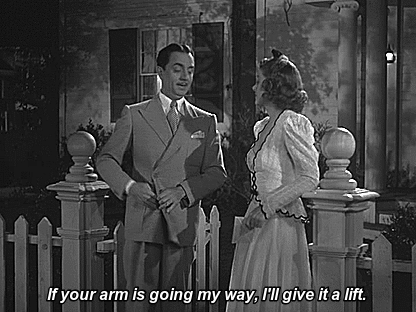

William Powell and Myrna Loy in I Love You Again (1940) dir. W.S. Van Dyke
#myrna loy#william powell#1940#1940s#40s#comedy#screwball comdy#romantic comedy#w s van dyke#quote#remember2020
184 notes
·
View notes
Quote
We forget sometimes that the essence of democracy is to question. In those days [McCarthy Era], people thought - some still do - that liberal meant Communist. To me a liberal is one who moves slightly left when the Fascists get too strong and slightly right when the Communists get too pushy. A real liberal has to be flexible that way. …. I believe in liberality of thought and have no time for any kind of totalitarianism - be it right or left.
Myrna Loy
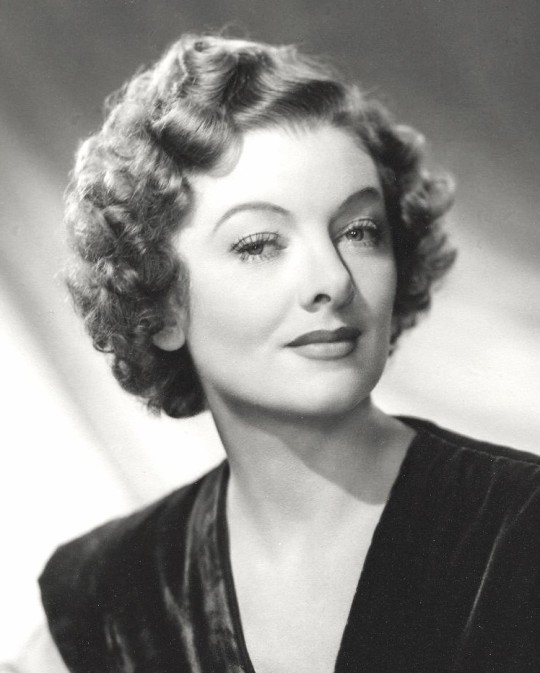
#Myrna Loy#myrna loy quote#liberalsim#liberal#Anti-Fascism#anti-communism#Thin Man#Nora Charles#The Myrna Loy Blog
140 notes
·
View notes
Photo
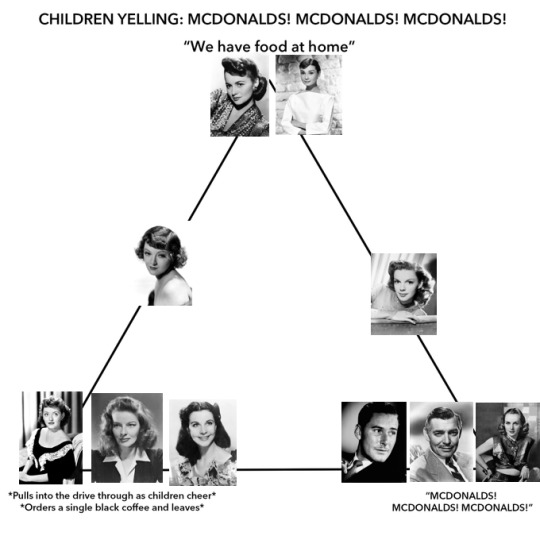
i know that this doesn’t include everyone but please just roll with it, i will make a part 2
special thanks to @pivoinedelicate for helping me
#not an incorrect quote#mcdonalds alignment chart#old hollywood#golden age of hollywood#classic hollywood#1930s#1940s#1950s#olivia de havilland#audrey hepburn#bette davis#katharine hepburn#vivien leigh#errol flynn#clark gab#carole lombard#judy garland#myrna loy
124 notes
·
View notes
Video
tumblr
Nora: They say you were shot in the tabloids.
Nick: They never got near my tabloids.
The Thin Man [1934] directed by W. S. Van Dyke and based on the novel by Dashiell Hammett
44 notes
·
View notes
Text
It is wonderful! This is how Myrna was all the time. Unpretentious. Lovely. She's talking about her current play (Barefoot in the Park by Neil Simon) and her extrirdinary life. Take a few minutes & enjoy.
youtube

Wonderful interview with Myrna Loy!
20 notes
·
View notes
Photo

Myrna Loy on her “perfect wife” casting:
“Some perfect wife I am. I've been married four times, divorced four times, have no children, and can't boil an egg”.
37 notes
·
View notes
Quote
Life is not a having and a getting, but a being and a becoming.
Myrna Loy
6 notes
·
View notes
Photo


The Bachelor & The Bobby-soxer (1947)
#shirley temple#myrna loy#lovethismovieee#cary grant#the bachelor and the bobby-soxer#1940s#hollywood#mdsrk#old hollywood#golden hollywood#black and white#movies#film#quotes#armour#old but gold#cinema comedy#comedy#scene
20 notes
·
View notes